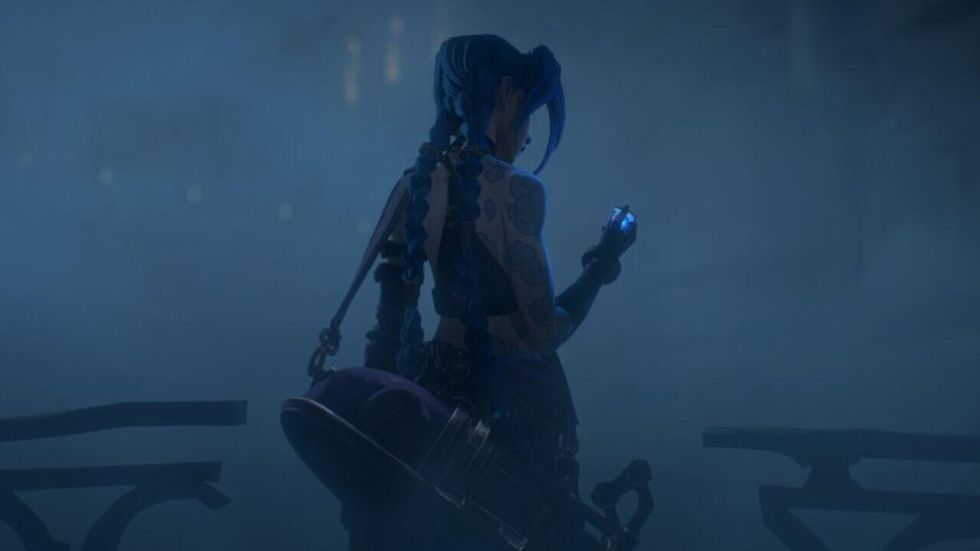The Key to Making a Great Video Game Adaptation? Do It on TV
Is there a way to make a great video game adaptation that does the source material justice?

Video game adaptations seem to be cursed. From the ill-fated theatrical premiere of Super Mario Bros.in 1993 to the underwhelming performance of the recently released Uncharted, these star-studded, big-budget films often miss the mark completely, failing to live up to their source material.
Unlike Marvel and DC comics, video games are a bit tricky to bring to the screen. Video games typically have a campaign that takes a gamer around nine to 20 hours to play through. These are meticulously crafted to represent the themes and tone of the game's story. Video games also allow the player freedom to move freely through the space, exploring the intricate details of the world, and discovering the lore surrounding the main story.
Maybe there is just no clear-cut way to adapt the interactive premise into a passive format like film. The viewer no longer has to experience the same emotional reaction and anxiety that the game induces. Instead, the gamer is asked to sit back and watch a condensed version of the game they invested a few days in.

The truth is, video games don’t need to be adapted into movies. We are in a period where technology has allowed game developers to create cinematic worlds that are almost photo-realistic and have stories that can elicit an emotional response from the players in a similar way that cinema can.
Despite their cinematic elements, video games are still grossly misunderstood by Hollywood. Ten years ago, Roger Ebert dismissed The Last of Usupon the game’s reveal at E3, cosigning the columnist Steven Boone’s complaint about “loud, assaultive, photorealistic game design that rewards wispy attention spans while demanding minimal problem-solving skills of its players.” But that was the point. Big-budget video games of the 2010s were fighting for the same sort of respect that movies got nearly a century ago.
Hollywood struggles to produce video game adaptations on par with Christopher Nolan’s Dark Knight Trilogy or the never-ending stream of Marvel movies that earn real money, power, and respect. Even the modest success in adapting some video games like Detective Pikachu, Mortal Kombat, and Resident Evil suggests a more complex problem: where do these stories with extreme depth and focus on the details belong?

Video games have found a place in entertainment with television series. It began a few years ago with Netflix adapting Castlevania, a classic video game series from the 80s, into an animated series for “mature audiences.” Within its four seasons, Castlevania turned into a great show with impressive ratings due to its rich character drama driven by smart writing and stylish confrontations. In November, Netflix premiered its League of Legends adaptation, Arcane: League of Legends, an animated action-adventure series with an ensemble of magi wielders waging a bio-punk class war. Arcane’s story, characters, themes, and tone are as complex as the gorgeous hand-painted textured animation style.
League of Legends isn’t a story-led game, and many average players never bothered with learning the characters’ backstories, but the stories help build the world around the characters. When compared to films, video games are usually focused more on their environments rather than the stories. That’s not to say that the stories don’t matter, but the atmosphere and tone of the environment add another layer to the character’s journey and thematic issues.
Video games want the player to explore the world, marvel at the details, and live in the rendered world as if it were your reality. In comparison, films don’t want the viewer to explore outside of the character’s perspective and story. The exploration is limited. Television gives the story and environment the time it needs to be explored and developed.

While Castlevania and Arcane are animated series that have done exceptionally well for video game adaptations, it still doesn't account for the core challenge for video game adaptations: live-action. Netflix is pioneering that ground of live-action adaptations with The Witcher, a six-part series of high-fantasy novels, popularized in the U.S. by the role-playing video game adaptations. The show has become one of Netflix’s most-streamed television series, showcasing that the ideal medium for all video game adaptations is streaming television.
HBO is adapting The Last of Us into a live-action series starring Pedro Pascal and Bella Ramsey, Amazon is adapting Fallout, and Paramount+ has an adaption of Haloavailable to stream. These adaptations do not mean that video games can’t be adapted into movies. Instead, the medium chosen for the video game adaptations needs to focus on very specific aspects of the story. If the game is adapted for film, focus on the character’s core story and not the spectacle of the environment.
Video games have a place in Hollywood, but these adaptations need to be treated with care and respect. Video games are unique in the aspect that they are both spectacle and substance, and Hollywood tends to struggle when it comes to balancing both of these elements in film. Hopefully, we will see a change as more video games are adapted for television and begin to transition onto the big screen.
What video game would you like to see adapted for TV or film? Let us know why in the comments below!
Source: The Ringer











